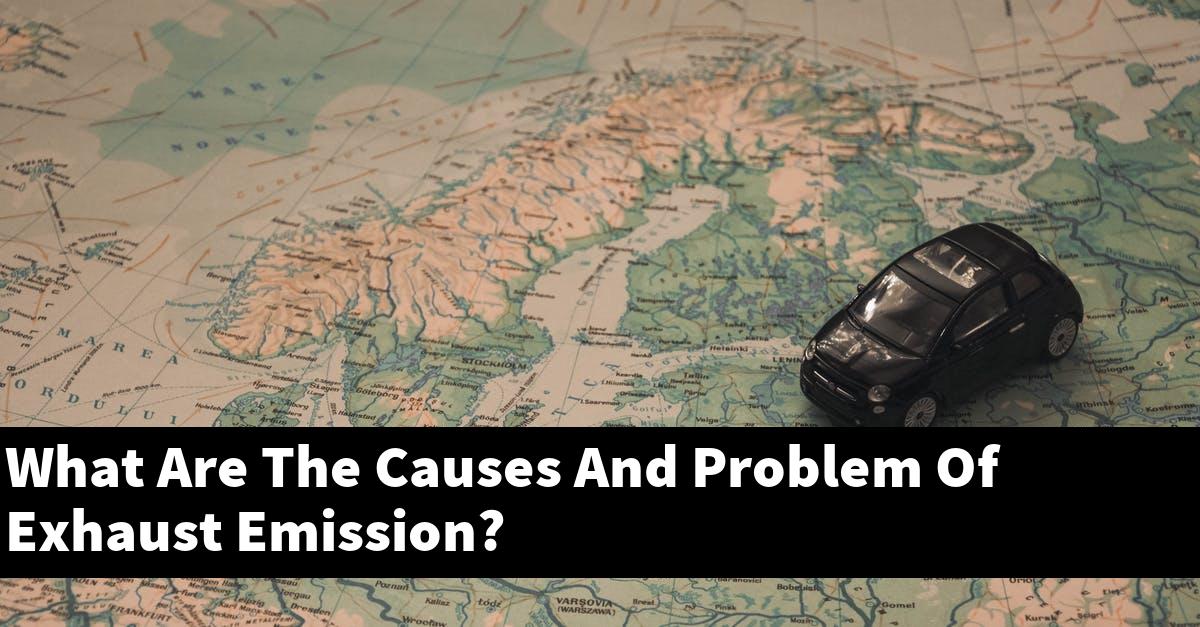Exhaust emissions are the result of the combustion process that takes place within the engine of a vehicle. The main problem with exhaust emissions is that they contain a number of harmful pollutants, including carbon monoxide, nitrogen oxides and hydrocarbons.
These pollutants can have a negative impact on both the environment and human health.
There are a number of different ways to reduce exhaust emissions, including the use of catalytic converters and exhaust gas recirculation systems. However, the most effective way to reduce emissions is to simply use a cleaner burning fuel.
What are the major exhaust emissions from an engine??
There are a variety of exhaust emissions from an engine, but the three most common are carbon monoxide (CO), nitrogen oxide (NOx), and particulate matter (PM). CO is a gas that is created when the engine burns fuel, and it can be deadly if breathed in. NOx is a gas that can cause respiratory problems, and PM is a type of air pollution that can lead to heart disease.
What are the causes of engine emissions?
The causes of engine emissions are many and varied, but can generally be grouped into three categories: mechanical, chemical, and electronic.
Mechanical emissions arise from the engine itself, including the pistons, valves, and combustion chamber. These emissions can be caused by wear and tear, incorrect assembly, or incorrect fuel mixture.
Chemical emissions arise from the burning of fuel in the engine. These emissions include carbon monoxide (CO), nitrogen oxides (NOx), and particulate matter (PM).
Electronic emissions arise from the electrical systems in the engine. These emissions can include engine coolant water (ECW) temperature, fuel system faults, and the emission control system (EMS).
What are the harmful gasses emitted from the exhaust?
The harmful gases emitted from an engine can include carbon monoxide, hydrocarbons, and nitrogen oxide. These gases are all harmful to the environment and can cause health problems if breathed in.
What does exhaust emission mean?
Exhaust emission is the release of pollutants, including air pollutants and water pollutants, from a vehicle’s engine and exhaust system. These pollutants can harm human health and the environment.
The Environmental Protection Agency (EPA) regulates exhaust emission levels for new and modified vehicles.
What is the main impact of exhaust on the environment?
Exhaust from vehicles and other sources creates air pollution, which can cause respiratory problems, heart disease, and other health problems. The Environmental Protection Agency (EPA) classifies air pollution into five main types: ozone, particulate matter, carbon monoxide, nitrogen dioxide, and sulfur dioxide.
Ozone is the most harmful to the environment, causing cancer and other respiratory problems.
Conclusion
Exhaust emissions are the result of the combustion process in an engine. They are made up of a variety of gases, including carbon dioxide, nitrogen oxides, and hydrocarbons.
These emissions can cause a variety of problems, including air pollution and global warming.


